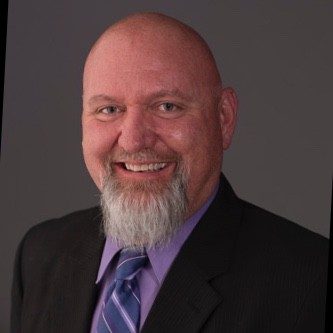Have Questions? We have answers.
Contact UsBio
Kevin D. Zeiler, JD, MBA is the Chair and Professor of the Health Professions Department at the Metropolitan State University of Denver, Colorado. He has 20 plus years of experience working in the health care field, as a paramedic, supervisor, legal professional and educator. His knowledge of both clinical and managerial principles has provided him a unique view of the health care industry.Professor Zeiler’s teaching focuses in the areas of health law, policy and management. He is also interested in the initial and continuing education of allied health professionals.
Degree
MBA
Regis University, College of Professional Studies
JD in Law
University of Denver, Sturm College of Law
BS in Health Care Management
Metropolitan State College of Denver
Other in
Arapahoe Community College
Published Works
- Greathouse, T., Starr, E., Zeiler, D. K., Rossi-Katz, J. . HCPS 1001: Responding to the COVID-19 Pandemic: Telehealth from a Multi-Disciplinary Approach. ,
- Zeiler, D. K. . Paramedicine Degree Development and Community Outreach. ,
- Zeiler, D. K. (2016). Introduction To Health Care Management. Jones & Bartlett Learning, https://www.amazon.com/dp/128408101X/ref=pd_lpo_sbs_dp_ss_1?pf_rd_p=1944687582&pf_rd_s=lpo-top-stripe-1&pf_rd_t=201&pf_rd_i=0763790869&pf_rd_m=ATVPDKIKX0DER&pf_rd_r=W1PHBE13SQ0TZ252GJ09
- Zeiler, D. K. (2015). Cultural Learning in Healthcare: Recognizing Differences in Health to Navigate and Improve Disparities. (Issue 1st). North American Business Press.
- Zeiler, D. K. (2013). Cases in Health Care Management. (Issue 1st, pp 300). Jones & Bartlett Learning. http://www.jblearning.com/catalog/9781449674298/
- Zeiler, D. K. (2011). Introduction To Health Care Management. Jones & Bartlett Learning, http://www.jblearning.com/catalog/9780763790868/
- Zeiler, D. K. (2011). Certified Public Accountants (CPA) Exam Review- (Category 1: Ethics and Responsibilities and Category 2: Business Law) . ExamMatrix,
Research Interests
Research interests include the following:
*Student outcomes in alternative classroom settings
*EMS issues in local jurisdictions as well as national trends
*Management policy outcomes
Teaching Interests
My philosophy of teaching is to create an environment that allows for an open and honest forum that allows us to share our learned knowledge as well as our personal experiences regarding the subject matter. I believe that students will thrive in an environment where the learning is collaborative in nature and ideas are allowed to flow freely. Meaningful and realistic situations create opportunities for significant learning to occur, so it has been my goal to ensure that I am creating the space for this to occur. The classroom does not have to be a brick-and-mortar space as learning can occur via technology as well as any number of environments that allow an opportunity to create such a space. The key to success is to provide the learner with the appropriate environment to succeed.
For me, the best way to accomplish these goals is through a mixture of lecture and small group teaching. The relevant setting must be created and is key to ensuring both the trust and willingness of the learner to engage. To realize this type of environment, it is my responsibility to set the tone, provide the background and allow the student to embrace the reality through organized pedagogical approaches to teaching and learning activities such as creating diverse assignments, small group discussions, active learning and authentic learning that allows students to realize the end use of the information. However, the environment needs to be safe, so the learner feels empowered to explore the boundaries of their developing skills. Without safety, learning will not occur.
I have worked diligently to ensure that this philosophy works throughout the various levels of teaching. For first year undergraduate students, the first sessions require time for acclimation to the learning as well as an understanding of the direction that the course is heading. It is also a perfect time for these students to meet their future colleagues as in many instances, these students in similar disciplines will cross paths in the industry. Therefore, small group work is critical for this phase of learning. In the classroom this can be accomplished in any traditional fashion, i.e., having students count into groups, appointing groups by sections of the classroom, etc., but online breakout rooms are often the most expedient. This is where the teacher is most critical as moving from room to room allows those students to feel safe in what often appears to be an isolated environment. Being able to direct the conversations in a short span of time gains trust and allows students to take the lead on topics in the teacher’s absence. For higher level courses or more experienced students, many of the same techniques apply, but it is critical to engage this group in more formalized assessments with critical but fair feedback. These students are better prepared to take on organized goals and objectives within the discipline and it allows them the freedom to realize how far their learning can take them. As the teacher, a clear understanding of the learner is necessary to ensure that time spent engaging any topic is well spent.
In higher education, teaching is a part of daily life and no matter your title, chair, dean, etc., we all teach, and I enjoy it tremendously. I take very seriously the responsibility and privilege of educating students, colleagues, and myself. Given the constant technological changes and the scientific discoveries surrounding neuroplasticity, both teaching and learning are on-going processes to which I will continue to dedicate my greatest attention.
Office Hours
FALL SEMESTER 2023: Monday-10:00-3:00 p.m.


